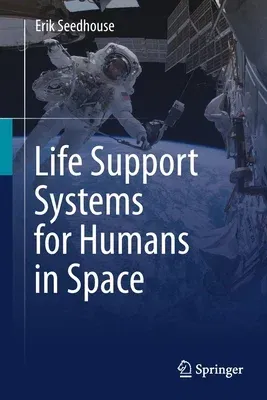Erik Seedhouse
(Author)Life Support Systems for Humans in Space (2020)Paperback - 2020, 5 September 2020

Qty
1
Turbo
Ships in 2 - 3 days
In Stock
Free Delivery
Cash on Delivery
15 Days
Free Returns
Secure Checkout

Print Length
314 pages
Language
English
Publisher
Springer
Date Published
5 Sep 2020
ISBN-10
3030528588
ISBN-13
9783030528584
Description
Product Details
Author:
Book Edition:
2020
Book Format:
Paperback
Country of Origin:
NL
Date Published:
5 September 2020
Dimensions:
23.39 x
15.6 x
1.75 cm
ISBN-10:
3030528588
ISBN-13:
9783030528584
Language:
English
Location:
Cham
Pages:
314
Publisher:
Weight:
462.66 gm